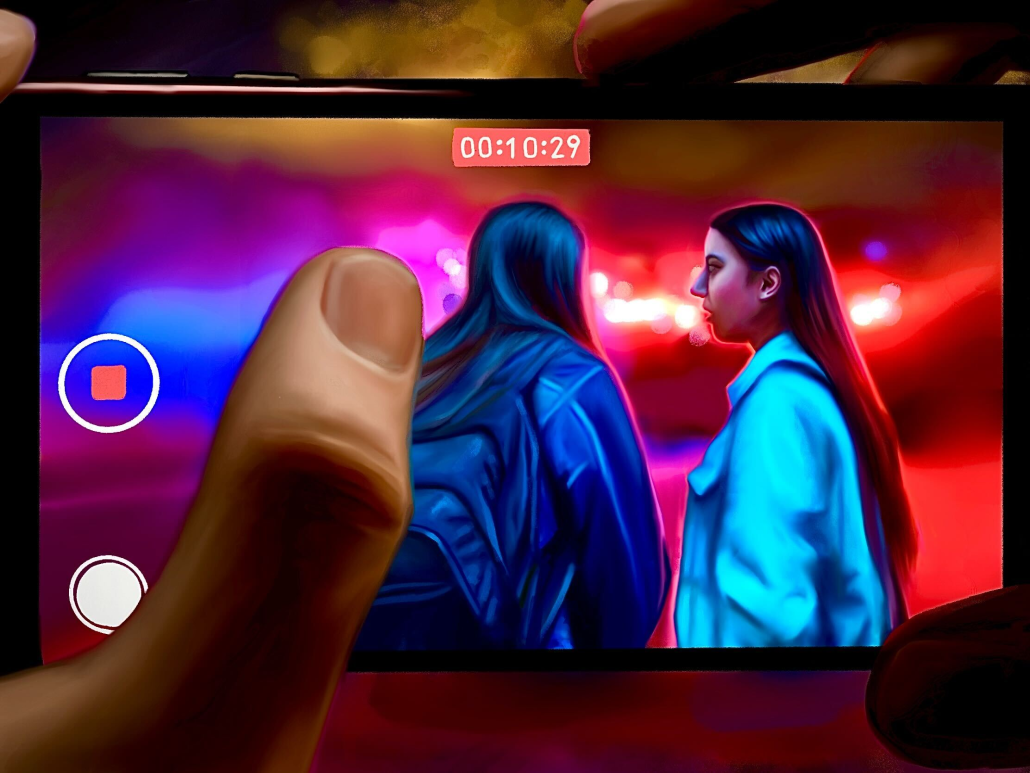SCA’s introductory screenwriting class crosses an ethical line

Anyone who wishes to declare a screenwriting minor or to internally transfer into the writing for screen and television major at the School of Cinematic Arts has to take Fundamentals of Screenwriting: Character, Conflict and Story and receive a passing grade.
As someone interested in a screenwriting minor, I decided to take Fundamentals of Screenwriting in Spring 2023. A few weeks into the class, I was in for a surprise: Our homework for the week was to set out into the world and find two conversations to record and transcribe.
But under California Penal Code 632, it is illegal to record a private conversation without the participants’ consent.
“If you want to record a conversation in California, you must inform all parties involved in the conversation and receive their consent before recording,” according to the Shouse California Law Group. “Otherwise, you are unlawfully eavesdropping.”
“The purpose of this exercise is to analyze and explore character study,” SCA wrote in a statement to the Daily Trojan. “This exercise is not for public consumption outside of the classroom or for publication in any way. Taping or recording a conversation without consent is not permitted.”
Despite this affirmation, some students said their professors are explicitly asking them to do just that. It’s generally understood by students that a conversation recorded consensually would lose its “authenticity.”
Will Carragher, a senior majoring in the business of cinematic arts, enrolled in Fundamentals of Screenwriting to complete a requirement for his comedy screenwriting minor. Carragher said that while he understood the purpose of the assignment, it was an “interesting” request to put students “in the field.”
“Our professor specifically told us to kind of go undercover and not have the people [know] that we were listening to their conversation or recording them just to get the most natural dialogue,” Carragher said.
The assignment itself does not mention consent or privacy stipulations at all: “Listen and tape two conversations. Type them up. What do they tell you about character and dialogue? Write character introduction scene.”
While the class has different instructors each semester, they are all expected to adhere to a common syllabus, including this assignment. Unless a teacher is knowledgeable of California privacy laws, they would not know to tell students to ask for consent — an oversight on SCA’s part.
There seems to be miscommunication between SCA and its professors, leading the more than 150 students who take the class each year to complete a borderline illegal assignment.
The exceptions to CA PC 632 include conversations that take place at a public gathering, accidental recordings or if the conversation is not “confidential,” which is defined as “tak[ing] place in circumstances that reasonably indicate that at least one party to the conversation intends for no one else to overhear it.”
If people are having a conversation loudly in public, or in a place with such close proximity that reasonably keeping others from hearing it is impossible, it is no longer “confidential.” Therefore, on a case-by-case basis, students’ recordings would not violate the law if the conversation met these criteria.
“There are various sections of this course and professors use their discretion in how the assignments are executed,” SCA wrote when asked whether the school told professors to include consent as part of the assignment. “Consent is a foundational issue to the School, and this position will be reiterated moving forward.”
SCA’s commitment to emphasizing consent is great news for students in the future, but hundreds of students each year have already been given an unclear assignment that, depending on how it was executed, put them at risk of breaking the law — and some of these students have expressed discomfort around completing the task.
“I was kind of excited at first to do it,” Carragher said. “However, when I was actually doing it, I would say it was a little weird, trying to listen to a conversation and record it and be very close to the people who are speaking, because they had no idea I was recording it.”
Jack Drake, an undeclared sophomore, took Fundamentals of Screenwriting as a prerequisite for the application to the screenwriting major and said that the assignment was “a little bit odd.”
“There’s kind of an issue with an authority figure asking you to do an assignment that is borderline illegal for a grade,” Drake said.
Not only is it an uncomfortable invasion of privacy, but many students in my class struggled to find conversations interesting enough to record. Some students recorded hilarious conversations from the dining hall, but others admitted after class to making their conversations up because they didn’t come across anything worth using.
“It took me all week to actually get anything that would work for the assignment at all,” Drake said. “It was super stressful because I was really worried that people were gonna realize that I was recording their conversations.”
An assignment that students are struggling to complete and some are fabricating is clearly not an effective way to teach dialogue. SCA should turn to other methods of teaching dialogue to improve its curriculum and take the pressure of toeing a legal and ethical line off its students and teachers.
SCA could alternatively task students with simply listening to those around them and taking notes to gain knowledge of dialogue, reading scripts that have strong dialogue or any other method a professor could come up with — that’s their job.
The top cinema school in the country should be able to figure out an alternative way of teaching students to write good dialogue that doesn’t put them at risk of breaking the law and violating the privacy of others.

